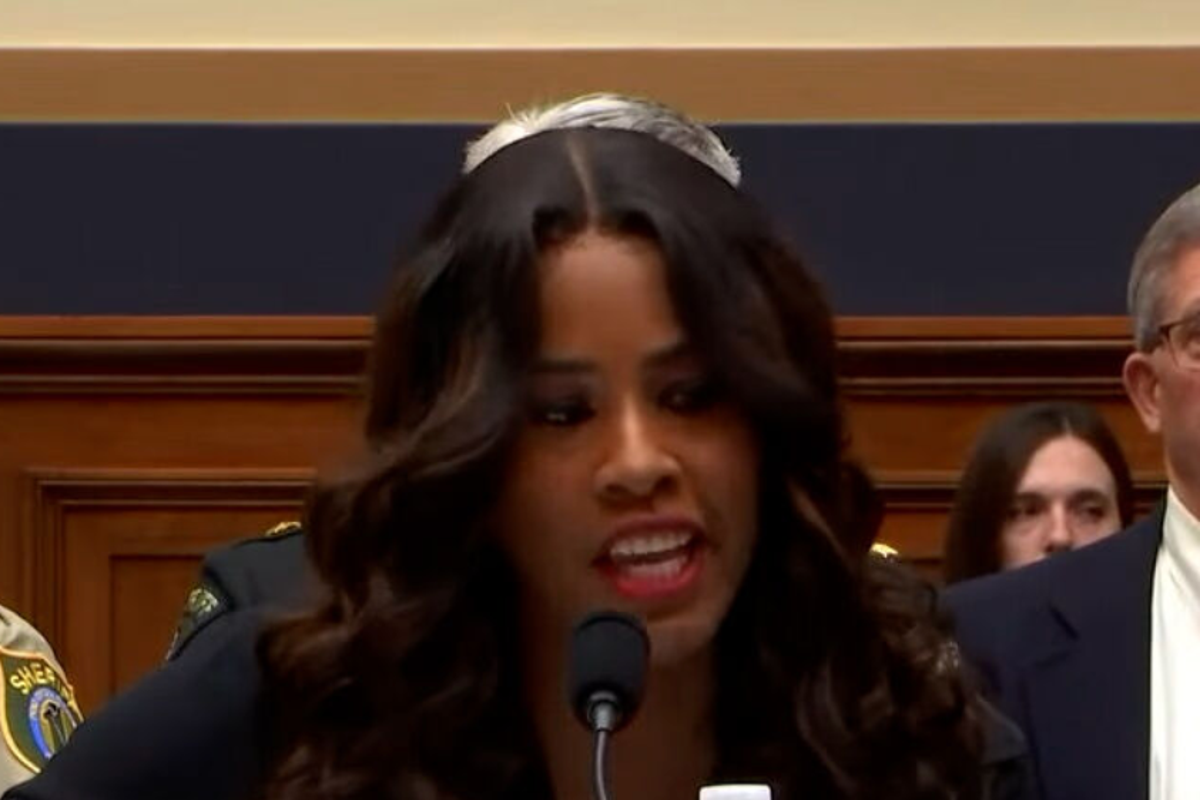Understanding the Current Landscape of Political Tension: Trump’s Chicago Remarks
In recent weeks, political discourse in the United States has taken a turn toward the dramatic, particularly with former President Donald Trump’s comments regarding the deployment of federal troops to Chicago. This conversation is set against a backdrop of heightened tensions between state and federal governance, a relationship that has long been a topic of debate in American politics.
The Context of Trump’s Remarks
Trump’s assertion that "African-American ladies… beautiful ladies" are urging him to send federal troops to Chicago has provoked a significant amount of commentary and speculation. This statement was made during a press briefing in the Oval Office, reflecting his administration’s ongoing focus on urban violence and law enforcement. The claim is particularly striking as it taps into broader discussions about race, crime, and the role of government in policing those communities.
While discussing his deployment of National Guard troops in Washington D.C. amid protests, Trump pointed to the desire for similar action in Chicago and potentially New York. He articulated an image of voters who feel abandoned, attempting to forge a narrative that aligns his policies with the needs of certain demographics. However, this portrayal has met with skepticism and backlash from various political leaders.
The Reaction from Local Voices
One local figure, Danielle Carter-Walters, a personal trainer and conservative influencer, believes that she and her organization, Chicago Flips Red, were the audience Trump was addressing. She expressed elation upon hearing his remarks, claiming they align with their advocacy for federal intervention. Carter-Walters’s remarks underscore how Trump’s statements can resonate with specific grassroots movements, highlighting the complex fabric of political support.
However, her endorsement of federal troop deployment is not universally shared. Local leaders and activists are quick to voice their opposition, emphasizing the importance of community-led solutions over military presence. These contrasting views illustrate the divide not only within the political sphere but also among communities affected by crime and violence.
Political Ramifications
The implications of Trump’s comments extend far beyond individual reactions. Illinois Governor J.B. Pritzker responded firmly, asserting that the state would not allow federal overreach, expressing a sentiment echoed by other local leaders. This opposition showcases a larger struggle between the federal government’s authority and state sovereignty—a foundational principle embedded in American governance.
Furthermore, public sentiment in Washington D.C. mirrors this opposition, with a significant majority of residents rejecting the militarized presence in their neighborhoods. This opposition highlights the tension between governance and the lived experiences of citizens struggling with complex social issues, such as crime, policing, and community trust.
National Guard Deployments: Legal and Ethical Considerations
Trump’s ability to deploy troops in Washington D.C. hinges on federal authorities, as the nation’s capital is unique in its governance structure. However, deploying National Guard units in states requires the permission of the respective governors, which complicates Trump’s plans for cities like Chicago. The legal landscape surrounding these actions raises critical questions about the limits of executive power and the responsibilities of state governance.
Critics argue that the approach reflects a broader pattern of authoritarian tendencies, portraying the deployment as a tool for political theater rather than genuine public safety concerns. Statements from various figures criticize these actions as a show of strength by a weakened political leader, questioning the motivations behind such decisions.
Community Perspectives on Safety
Chicago’s city leadership has pushed back against the notion of military solutions as a remedy for urban violence. Mayor Brandon Scott articulately conveyed the view that such measures would not be welcome and that the city’s residents deserve humanity and dignity in their approach to governance. His response emphasizes the city’s historical resilience against external pressures, framing it as an integral part of its identity.
Local activists and community leaders are advocating for investment in social programs, mental health services, and community policing strategies instead of a militarized police presence. This perspective is critical as communities seek sustainable solutions to deep-rooted issues rather than temporary fixes that may exacerbate tensions.
Conclusion: A Tenuous Political Atmosphere
The political climate surrounding Trump’s comments and the potential for military interventions in urban areas like Chicago reflects a deeply polarized nation grappling with fundamental questions of governance, safety, and community trust. As local leaders and citizens rally against perceived overreach, the need for dialogue and engagement with communities becomes increasingly important. The future of these discussions will undoubtedly shape the next chapter in the ongoing narrative of American political life.



